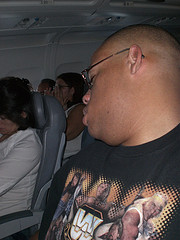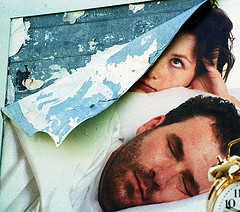
flickr.com/crossfirecw
A nighttime intruder creeps into the deepest corners of your sleep, and quietly takes your breath.
This sounds like a really terrifying nightmare. In fact, it’s something that countless men, women, and children, face every night of their lives.
Sleep apnea is generally a medical problem characterized by the interruption of breathing during sleep. The literal translation of ‘apnea’, in Greek, is “without breath”. If left untreated, it is a problem that can lead to some very serious health concerns. Read more . . .



